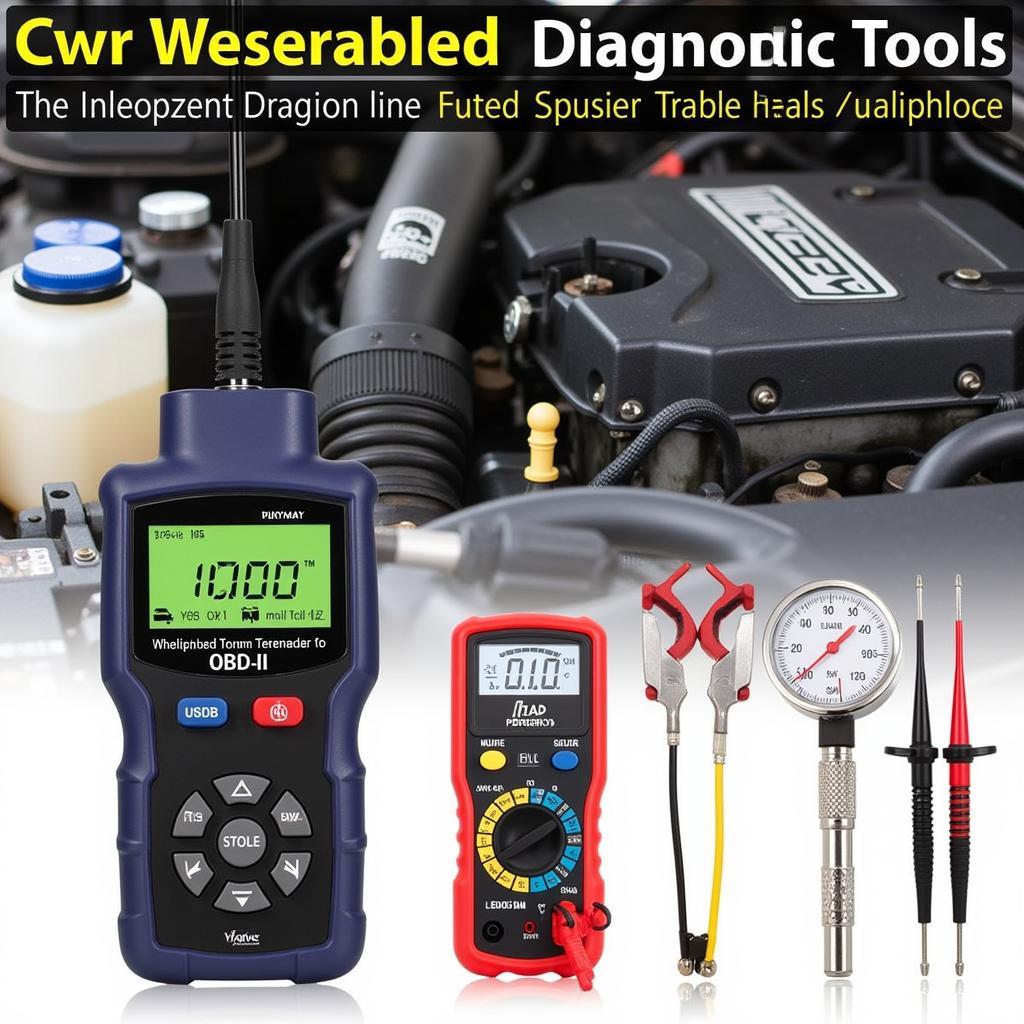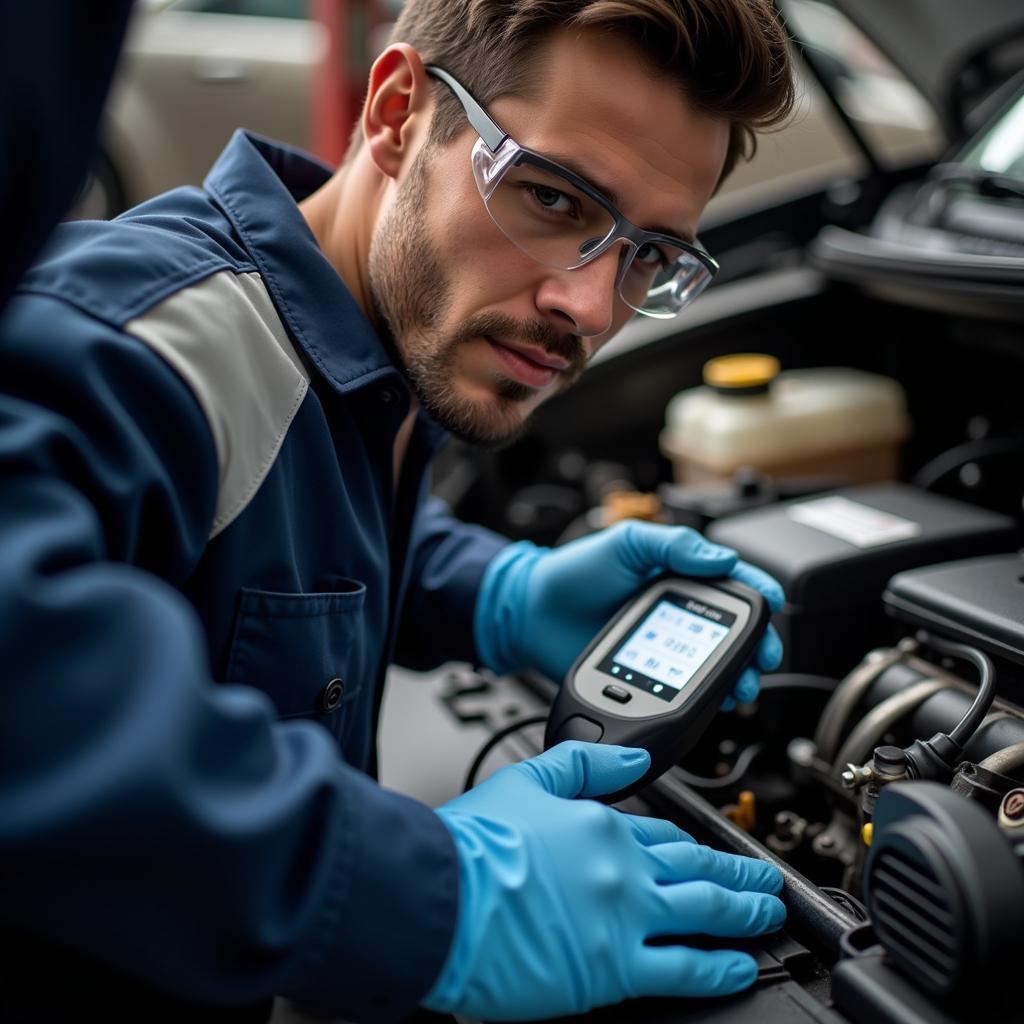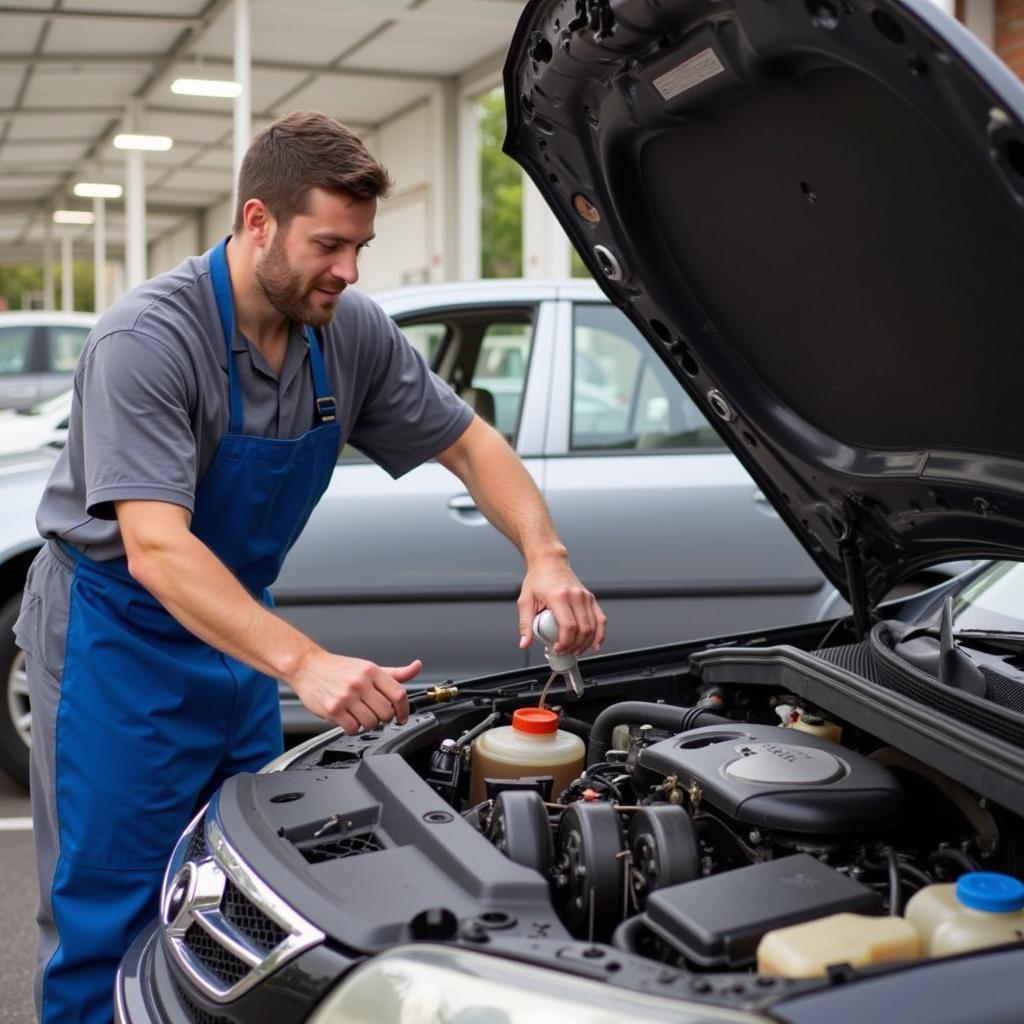Car Problem Troubleshooting can be daunting, whether you’re a seasoned mechanic or a new car owner. This comprehensive guide offers practical advice and expert insights to help you diagnose and fix common car issues, saving you time and money.  Car Engine Diagnostic Tools
Car Engine Diagnostic Tools
Understanding the Basics of Car Problem Troubleshooting
Effective car problem troubleshooting starts with understanding your vehicle’s systems. Think of your car as an intricate puzzle; each component plays a vital role. When one piece malfunctions, it can trigger a chain reaction, leading to more significant problems. Before diving into complex repairs, it’s crucial to familiarize yourself with the basics. This includes understanding how the engine, transmission, electrical system, and other vital components work together. Knowing these fundamentals can help you pinpoint the source of the problem more efficiently.
Do you hear a strange noise coming from your engine? Is your car struggling to start? Or maybe your check engine light is on? These are all signs that you need to start troubleshooting. Identifying the symptoms is the first step in effective car problem troubleshooting. Be observant and note down any unusual noises, smells, or performance issues.
After you have identified the symptoms, move to the next step.  Mechanic Checking Car Engine
Mechanic Checking Car Engine
Common Car Problems and Solutions
Many car problems can be diagnosed and fixed with a little bit of know-how. Here are some common issues and their potential solutions:
- Car won’t start: This could be due to a dead battery, faulty starter, or a problem with the ignition system. Try jump-starting your car. If that doesn’t work, you might need to replace the battery or starter. Refer to your car’s manual for specific instructions.
- Overheating: A common culprit is a low coolant level or a malfunctioning thermostat. Check your coolant level and add more if needed. If the problem persists, have a mechanic inspect your thermostat.
- Strange noises: Unusual sounds can indicate various problems, from worn brake pads to a loose exhaust system. Carefully listen to the noise and try to pinpoint its location. This information can be helpful when consulting a mechanic.
- Poor fuel economy: Several factors can contribute to this, including a dirty air filter, worn spark plugs, or incorrect tire pressure. Check and replace your air filter, spark plugs, and ensure your tires are properly inflated.
Remember, safety should always be your priority when troubleshooting car problems. Working on a car can be dangerous, so take necessary precautions and seek professional help if needed. For issues related to your car’s suspension, visit car suspensions problems.
How Can I Troubleshoot Electrical Problems in My Car?
Electrical problems can be particularly tricky to diagnose. A multimeter can be invaluable in this situation. This tool helps you measure voltage, current, and resistance, allowing you to pinpoint electrical faults. If you suspect an electrical issue, consult a qualified auto electrician.
Sometimes, even seemingly unrelated issues can stem from underlying electrical problems. For instance, problems with the trunk can have electrical roots. You can find more information about this on our page regarding 2003 lincoln town car trunk problems. Another example is electric car issues, such as those experienced with the Coda, which you can read more about on our page discussing coda electric car problems.
Leveraging Diagnostic Tools for Car Problem Troubleshooting
Modern cars are equipped with sophisticated onboard diagnostic systems (OBD). An OBD-II scanner can be a powerful tool for car problem troubleshooting. This device plugs into your car’s OBD port and retrieves diagnostic trouble codes (DTCs). These codes provide valuable clues about the nature of the problem, making it easier to identify the faulty component.
“A good OBD-II scanner is like having a mechanic in your pocket,” says John Smith, a certified automotive technician with over 20 years of experience. “It can save you a lot of time and money by helping you quickly pinpoint the source of the problem.”
Another common area where troubleshooting is needed is related to car wash systems, especially when it comes to water quality. You can find helpful tips regarding this on our page about car wash water problems.
Conclusion
Car problem troubleshooting can seem overwhelming at first, but by following a systematic approach and utilizing the right tools and resources, you can successfully diagnose and resolve many common car issues. Remember to start with the basics, identify the symptoms, and leverage available resources like your car’s manual and online forums. For any further assistance, connect with AutoTipPro at +1 (641) 206-8880 or visit our office at 500 N St Mary’s St, San Antonio, TX 78205, United States. We’re here to help you keep your car running smoothly. Don’t hesitate to reach out to us for expert advice and support with your car problem troubleshooting needs. Even simple physics problems, like a physics toy car problem, can teach valuable lessons about mechanics.





Leave a Reply